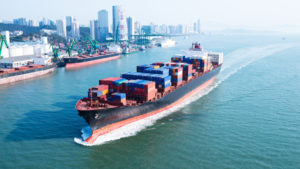
With the pending imposition of higher tariffs on China, companies have begun reevaluating their operations there. Sharp and Kyocera are two of the many manufacturers considering a relocation of their assembly plants to other nations. The tariff increase could lead to a tidal wave of factories moving out of China. Gen Nakamura at The Nikkei Asian Review reports:
Sharp and Kyocera are the latest office equipment manufacturers based in Japan to consider shifting production away from China to protect their businesses from the U.S.-China trade war, Nikkei has learned.
The two companies would follow global market leader Ricoh, the Japanese peer that has decided to move all production of U.S.-bound high-end multifunction printers to Thailand from China.
Sharp produces most of its multifunction printers destined for the U.S. in China’s Jiangsu Province. But the group plans to shift capacity to central Thailand in stages starting later this year if Washington launches a proposed fourth round of tariffs on Chinese-made goods.
Output affected by the move is estimated at nearly 100,000 printers, or about 20% of Sharp’s annual global sales.
The company apparently intends to increase the number of Thai personnel, while not committing any additional capital spending to that location.
Sharp’s parent, Apple assembler Hon Hai Precision Industry, decided this year to move some production of telecommunications equipment from the Chinese mainland back home to Taiwan in response to trade and technology tensions between the U.S. and China.
Sharp logged roughly 320 billion yen ($2.89 billion) in sales from its office equipment business in fiscal 2018, accounting for over 10% of the company’s total sales.
Kyocera is weighing a shift in production of U.S.-bound copiers to facilities in Vietnam, one of two manufacturing hubs for the company along with the Chinese city of Guangzhou. The Kyoto-based group took in sales of about 375 billion yen from the office equipment operation in fiscal 2018, with about 25% coming from the U.S.
An actual transfer of capacity would take about half a year. Kyocera will decide after examining the impact of the U.S.-China trade war on its business.
Read more here.



